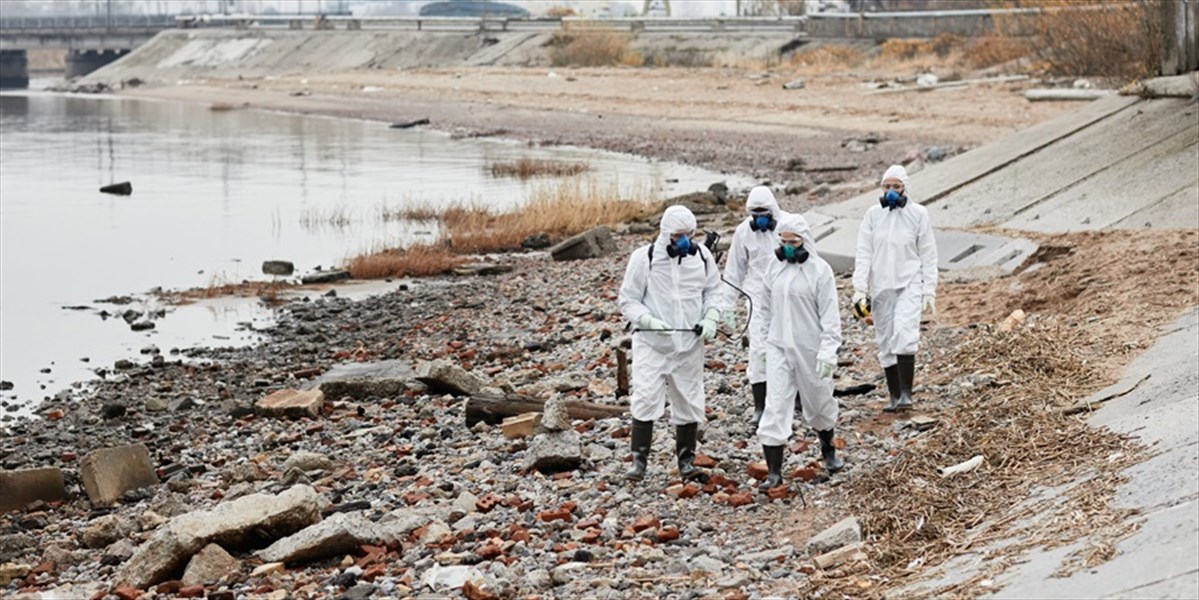Wasting lives: The effects of toxic waste exposure on health. The case of Campania, Southern Italy
Maddalena Barba, Alfredo Mazza, Carla Guerriero, Massimo Di Maio, Frank Romeo, Pasquale Maranta,
Ignazio R. Marino, Marco G. Paggi and Antonio Giordano
Three decades of illegal practices of waste dumping and consequent environmental abuse have made the Campania Region, Southern Italy, a unique case in the context of wasterelated health outcomes. Scientific evidence is mounting in support of a significant increase in cancer mortality and malformation occurrence in specific areas of the Campania Region, where improper waste management and illegal waste trafficking have been repeatedly documented. However, the currently available evidence suffers from limitations mainly due to study design, lack of consideration of confounders and quality of the exposure data. Recent economic studies have shown the economic benefits of reclaiming toxic waste sites in Campania. Future perspectives include the adoption of different study designs, use of biomarkers and a molecular approach. Current knowledge, both scientific and economic, might be of help in orienting the short and long term governmental policy on waste related health outcomes at a regional level.
Introduction
Waste management encompasses a wide spectrum of functional elements including generation, processing, transport and disposal of solid waste material. The involved procedures might largely differ based on various determinants, such as waste characteristics (e.g. solid, liquid or gaseous substances), producer profile (residential vs. industrial producers) and involved area (high population density vs. low population density). Notwithstanding the general trend towards an increasing proportion of waste being recycled, disposal, by landfilling still represents the most common ultimate fate of solid wastes.
Residential proximity to waste disposals has been associated with adverse health outcomes. The available data mostly relates to cancer and birth outcomes, while data on respiratory, skin and gastrointestinal symptoms or diseases is still sparse.2-6 Overall, the existing evidence does not rule out a clear role of landfilling in determining adverse health effects. In addition, the available data is substantially weakened by a number of methodological issues including inconsistencies in study design, use of surrogate measures of exposures (e.g. distance from the site of waste disposal), lack of control for potential confounders (i.e., factors correlated with both the exposure and outcome of interest, which do not lie on the causal pathway linking the exposure to the disease).
Three decades of illegal practices of waste dumping and consequent environmental abuse have made the Campania Region, Southern Italy, a unique case in the context described so far. Since the 1980s, several illegal and uncontrolled sites of urban, toxic, and industrial waste disposal, including land filling and unauthorized incineration, have been known to be active in this Region, with the highest concentration being reached in the two provinces of Naples and Caserta. Results from a number of recently conducted studies have shown significantly increased cancer mortality (overall and site specific) and congenital malformation rates in the Provinces of Naples and Caserta compared to the expected figures from the regional population.8-10 In the highlighted areas (i.e., the northern part of the Naples Province and the southern part of the Caserta Province), illegal dumping of toxic wastes has been largely documented.11-12
In 1998, Agroaversano and Litorale Domizio, the two areas in Campania most affected by illegal dumping and burning, were included in the national priority list of reclamation sites. Since then, little has been done to clean up the contaminated areas.13
The task of quantifying the costs and the benefits arising from remedial interventions in monetary terms is pivotal to decisions regarding the prioritization of sites within the National Remediation Program.14 Recent economic evaluations suggest that the high impact of hazardous waste exposure on human health in the two provinces of Naples and Caserta creates a strong economic incentive for reclaiming toxic waste sites (legal and illegal) in the Campania Region.15
In this review, we summarize and discuss the scientific evidence on waste exposure and health outcomes in the Campania region, with a specific focus on cancer mortality and congenital anomalies. We also discuss the results of the extensive biomonitoring activities conducted in Campania for a wide range of chemical agents (i.e., heavy metals, polychlorinated biphenyls, dioxins and polycyclic aromatic hydrocarbons). We then consider evidence from economic studies seeking to evaluate the economic benefit of reclaiming hazardous waste sites present in the Campania Region.
[...]
Summary and Conclusions
In summary, scientific evidence is mounting in support of the association between waste exposure and health outcomes in specific areas of the Campania Region, where improper waste management and illegal waste trafficking have been repeatedly documented. However, the currently available evidence suffers from limitations mainly due to study design, lack of consideration of confounders and quality of exposure data. The adoption of different study designs, use of biomarkers and a molecular approach might greatly improve the quality of the upcoming studies. In recent years, the use of a multidisciplinary approach integrating epidemiologic and economic expertises has produced impressive results. The net monetary benefits deriving from the reclamation of hazardous sites present in Campania would be considerably higher than the estimated costs. In a recent study of the effects of US superfund cleanups on human health, the authors observed a 20–25% reduction of congenital anomalies in residents of areas where the remediation of contaminated sites took place. Such a decrease has an equivalent in terms of lives saved and quality of life for future generations. The same goals need to be pursued in the Campania Region.38
In conclusion, the scientific panorama, along with the results of economic studies, encourage further investigation on the topic addressed. Considering the results of such studies is a must in orienting the short and long term governmental policy on waste related health outcomes at a regional level.
Acknowledgments
This work has been supported by the Human Health Foundation, Spoleto (PG), Italy (www.hhfonlus.org) and by the Sbarro Health Research Organization, Philadelphia, PA (www.shro.org)
 06.60301809
06.60301809






